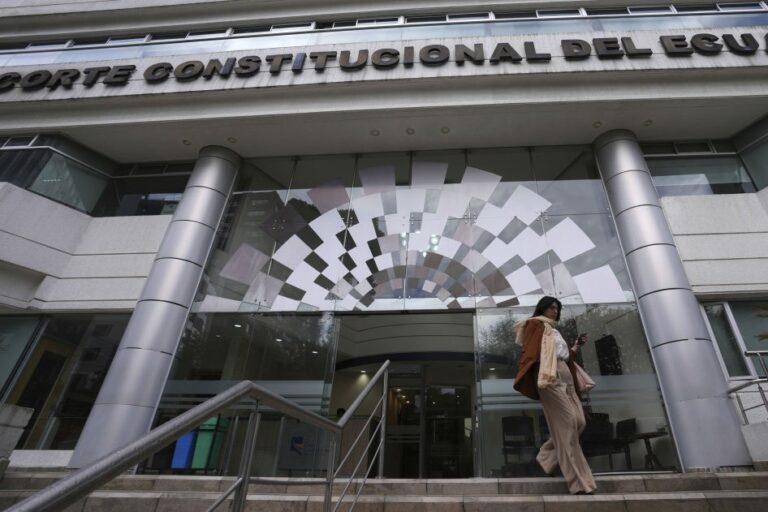Quevedo & Ponce - Legal News
New Law Against Unfair Competition in Ecuador: Key Points and Scope
- September 24th, 2025
- Quevedo & Ponce
As of August 29, 2025, Ecuador has established a new legal framework with the Organic Law on the Regulation Against Unfair Competition, published in the Official Gazette. This regulation seeks to ensure that market practices are conducted under the principles of transparency, loyalty, and consumer protection, sanctioning any conduct that undermines commercial good faith and affects both consumers and businesses acting in compliance with the law.
The law has a broad scope, applying to natural and legal persons, whether public or private, national or foreign, as long as they engage in activities in the Ecuadorian market or are affected by unfair practices. Prohibited behaviors include deceptive strategies that mislead consumers, unlawful imitation of products or services, unfair comparisons with competitors, and unauthorized use or disclosure of trade secrets.
The Superintendency of Economic Competition is the authority responsible for enforcing the regulation. This body has the power to investigate, sanction, and impose corrective measures in cases of unfair competition. Proceedings may be initiated either ex officio or based on complaints filed by parties with a legitimate interest, thereby strengthening institutional oversight of market fairness and competition.
Regarding sanctions, the law provides strict measures for non-compliance. Fines may reach up to 12% of the infringing company’s gross income for unfair competition practices, and up to 10% of gross income for non-compliance with resolutions or failure to cooperate. Coercive fines of up to 200 unified basic salaries may also be imposed, and sanctions prescribe after eight years.
Finally, the law allows investigated companies to propose cease-and-desist commitments to halt the challenged practices before a final resolution is issued. Affected parties may also pursue judicial actions such as a declaration of unfairness, cessation of the conduct, or removal of its effects, always within the legally established timeframes. Overall, this law seeks to strengthen trust in the Ecuadorian market, ensuring fair conditions for consumers and companies that operate in compliance with the law.
At Quevedo & Ponce, we have extensive experience in competition law and regulatory compliance. We advise our clients on the prevention, identification, and management of practices that may be considered unfair, providing strategic support in administrative investigations and judicial proceedings.
Más Artículos
Digital Piracy in Ecuador: A Legal Challenge in the Technological Era
Digital piracy is one of the greatest challenges for the protection of intellectual property in Ecuador. The use of illegal platforms to distribute content without authorization infringes the rights of authors and creators while exposing users to legal and technological risks. Despite the existing legal framework, it is necessary to promote a digital culture that respects copyright.
Metropolitan Ordinance No. 086-2024: Key Points and Challenges for Taxpayers
On December 26, 2024, Metropolitan Ordinance No. 086-2024 was enacted, modifying the patent tax and 1.5 tax on total assets. The regulation distinguishes obligations based on whether taxpayers are required to keep accounting records, and introduces benefits and exemptions in certain cases. It is essential to know these changes and deadlines to ensure compliance and optimize tax burdens. This article explains the key points that every taxpayer should know.
The Constitutional Court provisionally suspended articles from three recently approved laws
On August 4, the Constitutional Court announced the decisions adopted by the Admissions Chamber. Among them was the provisional suspension of a transitory provision of the Organic Law on Public Integrity, several articles and the regulations of the Organic Law on Intelligence, and certain articles of the Organic Law on National Solidarity.
New Rules for the Annulment of Electronic Tax Documents in Ecuador: Tax Implications for Taxpayers
Discover the key changes introduced by Resolution NAC-DGERCGC25-00000014 issued by the Ecuadorian Internal Revenue Service (SRI), effective as of August 1, 2025, which regulate the annulment of electronic tax documents in Ecuador. This analysis addresses the tax implications and legal challenges for companies operating under electronic invoicing schemes.
Intellectual Property, International Harmonization, and the Role of Customs: The Philco Case as a Warning for Export-Oriented Companies
The use of trademarks in cross-border manufacturing operations poses significant legal risks, as evidenced by the Philco case in Brazil. This article analyzes how the unauthorized use of a trademark during manufacturing — even when the products are intended for export — may activate judicial and customs actions. Focusing the impact of the territoriality principle and the need for an international legal strategy.






